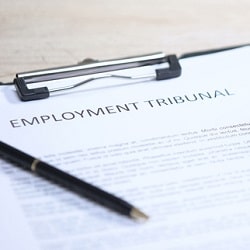
Tribunal: Solicitor was not a truthful witness
A former law firm managing partner misled an employment tribunal in the course of pursuing a disability discrimination claim against his ex-partners.
Employment Judge Rogerson said the tribunal “very reluctantly” found that Michael Willis “was not a truthful witness” and tried to mislead it “in some material aspects by the evidence he gave”.
This was, she said, “a difficult decision to make given the serious consequences it will no doubt have for the claimant personally and for his reputation after more than 20 years as a practising solicitor”.
But, by taking his allegations to a hearing, Mr Willis had decided they should be “open to that level of scrutiny”.
It was the second claim Mr Willis had brought against Sheffield-based GWBHarthills and partners Hester Russell and Elizabeth Lord; in the first, they admitted both direct and indirect disability discrimination, as well as a failure to make reasonable adjustments.
There has not yet been a remedy hearing because of the second claim for disability discrimination and victimisation. Mr Willis made nine further allegations, including that this was why he was not reinstated as managing partner, his profit share was withheld and his honesty and integrity were questioned.
Mr Willis was absent from work due to ill-health from July 2018 – initially due to cancer and later depression and then stress – and retired in March 2021. His cancer is now in remission.
A precondition of the income protection payments he received under insurance provided by Aviva and paid for by the firm was that he was ‘totally’ unable to work.
The tribunal said Mr Willis confirmed he had not expected to take any profit share as drawings because he knew it would have been treated as continuing income, which would have reduced his monthly payments from Aviva – but he nonetheless alleged that the respondents continued to discriminate by withholding his profit share.
“The claimant also knew that his full profit share… was being allocated in full into his partnership current account at the end of each accounting year.
“The tribunal found the claimant’s position on the pleaded detriment of ‘withholding profit share’ was and has been fundamentally contradictory to his own evidence and the undisputed facts.”
Similarly, Judge Rogerson said Mr Willis “has continued to unfairly blame the [firm and/or its accountant] for ‘wrongly’ paying his tax on profit share when he knew it was paid correctly on his unpaid profit share with his knowledge and approval”.
She continued: “His case was fundamentally contrary to the evidence and his evidence at this hearing was untruthful and was misleading. The claimant’s assertion that he was being ‘completely transparent’ with the Aviva and had disclosed all the information they requested was also untrue.”
A year into his sick leave, Mr Willis asked that his profit share be paid as a lump sum into his pension, arguing that it would not affect the Aviva pay-outs, a position the partners did not accept.
This was not a detriment or unfavourable treatment, the judge said, but even if it was, it was not because his disability: “It was because of the claimant’s lack of transparency, his unsatisfactory responses to questions, his unwillingness to cooperate with any joint enquiry [to Aviva], which did not alleviate the genuinely held concerns the respondents’ held at the time that they could be implicated in insurance fraud.”
The tribunal rejected all of the other allegations, including that his decision to retire was an act of unlawful discrimination or victimisation.
“The last admitted act of discrimination in Claim 1 occurred in January 2020, which was the act of excluding him from a partners meeting which did not take place. If the claimant was resigning in response to that act, he cannot explain why he continued to be a partner in the firm for over a year after that act to March 2021.”
Rather, Mr Willis retired because he had to make “a crunch decision” choosing between supporting the decision to take a government Covid loan, which he had opposed, and allowing the firm to go into liquidation.
Judge Rogerson said: “The fate of the firm rest in his hands. The claimant did not want to lose face and cooperate with his partners and then continue to be in partnership with them, but he also did not want to be responsible for the firm’s liquidation by continuing to veto the crisis proposals.
“The significant influence for the claimant in making his decision to retire on 8 March 2021 was that it was the only way of avoiding having to make that crunch decision. That was why he chose to retire on that day instead of choosing to continue in partnership.”












Leave a Comment